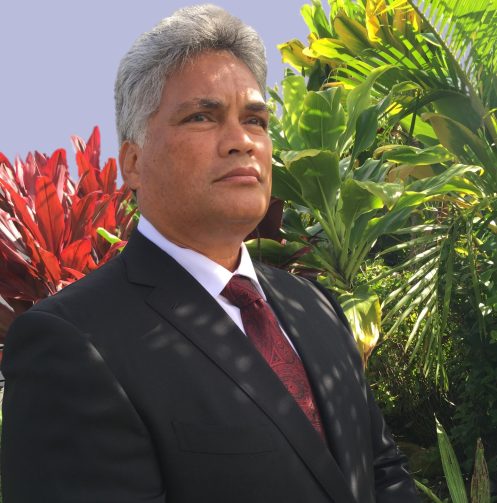
ALIʻI NUI MŌʻĪ
KA MŌʻĪ
KA MŌʻĪ, EDMUND KELI‘I PAKI-SILVA JR., Ali‘i Nui Mō‘ī (The King) closely resembles his direct ancestor, Kamehameha the Great. Not only is there a close physical resemblance, but there is a fierceness in spirit that is present. They both have the same determination of a warrior King protecting and uniting their people.
There are many claiming to be the King or Queen of Hawai‘i, but they are self-appointed. There is only one King who was asked to serve and that is King Paki-Silva.
Per ancient protocol in selecting a King, descendants of the original members of the House of Nobles as established by King Kamehameha III, selected Edmund Keli‘i Silva Jr. to reign as Ali‘i Nui Mō‘ī, High Chief and King of and for The Kingdom of Hawai‘i. His Royal Genealogy goes back to the beginning of time in a long line of Kings and High Chiefs before King Kamehameha the Great united the Hawaiian Islands as The Kingdom of Hawai'i. His lineage is also popularly known as that of King Kekaulike, the King of Maui and the father of Kamehameha Nui ‘Ai Lu‘au, his 6th generation great grandfather. The Maui Kingdom was ancient Hawai’i’s most powerful and significant Kingdom. It comprised the most undisputed Divine Royal Lineage whose origins derived from the most ancient birthrights (Ni‘au pi‘o, or sanctified lines) of all of Hawai‘i. (See more in the Royal Biography below.)
On November 22, 2002, the Prime Minister, Council of Regency, Na Kupuna Council O‘Hawai‘i Nei and Na Kupuna Council Hawai‘i Moku (Royal Kupuna House of Nobles) proclaimed Edmund K. Silva Jr. to be the lawful successor and Ali‘i Nui Mō‘ī (High Chief and King) of The Kingdom of Hawai‘i.
Queen Emma prophesied that a sacred child (Ni‘au pi‘o, or sanctified lines) would come forward to restore The Kingdom of Hawai‘i. It was determined by the Council that Edmund Keli‘i Silva Jr. was that child and Mikahala Roy, the King’s royal Kapuna, announced the King’s sacred Hawaiian name to be:
Nalikolauokalani Paki - Ka-‘i-‘omaka-ola-hou-Kaluaokalani-
ka-‘i-mano-‘anu‘unu‘u-ka-lama-kea-i-ho‘oku-ke-aupuni-o-Hawai‘i
The King now indicates his name as King Paki-Silva in every day Kingdom matters to honor his heritage and sacred name which came from the Paki line of his ancestry.
The King holds a law degree and has been a Federal Judge for the Aniyvwiya Cherokee Nation. This legal experience has served him well as he works towards restoration of The Kingdom of Hawai‘i as the country it has always been.
The United States participated in the 1933 Montevideo Convention on Rights and Duties of States where a common definition of a country was determined. In Article 1 it defines a country (state) under international law as possessing four qualifications – a permanent population, a defined territory, a government and the capacity to enter into relations with other states. The King has further strengthened the country’s status by initiating Treaties with other countries, reorganizing the government into a modern format based on ancient traditions, actively working with Kingdom business around the world and being recognized globally as the dedicated leader of the Kingdom of Hawai‘i.
"I am honored, and consider it my sacred duty, to be Ka Mō‘ī
---Ali‘i Nui Mō‘ī of The Kingdom of Hawai‘i."
KA MŌʻĪ, EDMUND KELI‘I PAKI-SILVA JR.
